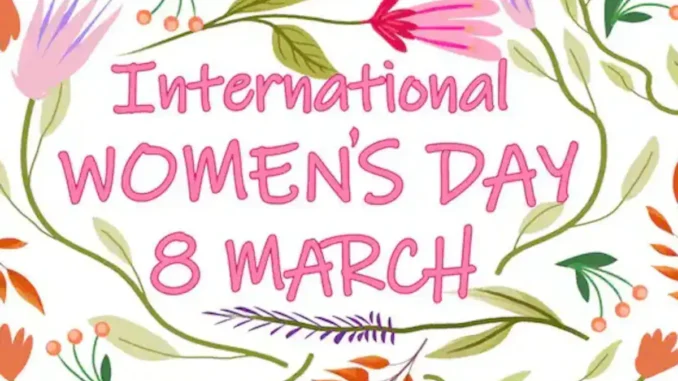
Beginning in 1910, March 8 became annually observed as International Women’s Day. At the time, most American women did not have the right to vote. The push for the observation was about women in the labor movement agitating for rights. At the time, most women were simply dependent on their families, working as unpaid domestic labor, unless they needed to work ‘outside the home,’ and opportunities ranged from limited to non-existent. At the time, not all women supported women changing the status quo.
Particularly in politics.
This week, when I published my “Mark Your Ballot” column, it got a lot of traction; it always does. One that came back to my in-box on a “reply all” was from a friend of a friend, a woman I don’t know, saying she would not be voting for Katie Porter. Her reason – Porter was “just not experienced enough.”
It’s put an echo in my mind of all the women who just could not see their way to voting for Hilary Clinton – despite the fact that she had more political experience than anyone else who had ever run for the office. If we can’t see women in positions of power, there’s a habit of saying “Well, just not THAT woman.” And that does not stand up to scrutiny.
Rather than seeing other women with empathy, we seem to see them as a problem.
In local government, I’m seeing a lot of women hating on women in the public sphere, and it’s getting giving me the same feeling. I see women in elected office being shouted down and vilified by other women, in ways that they do not treat men in elected office; men who are on the same elected bodies, men who hold the same values. As a journalist, I get my share of haters, often women, who seem to be outraged that I have the temerity to write editorials.
I’m an editor; it is traditionally considered to be part of the job.
In the misogynistic era of the Dobbs decision, of Justice Amy Coney Barrett, of Senator Katie Britt of Alabama speaking from her kitchen, I ‘m sorry that a woman as capable as Katie Porter isn’t in line to get Diane Feinstein’s seat.
When I teach, I sometimes talk about the ‘crab barrel’ effect. When there is an open barrel of crabs, there’s no need to put a top on it. If a crab tries to crawl out, another crab will very reliably pull it back down. The crustacean equivalent of ‘who do you think you are?’
So, only 114 years later, we are still not getting equal pay for equal work, our constitutional right to our own bodies is gone or at risk, but we do have the vote. How long will it take us to use that vote to put women in office and support them there, to see women in the public sphere as leaders? How can we foster enough empathy to stop seeing women in pubic office as threat to societal norms?
To paraphrase a famous quote – we have met the enemy, and she is us.
Fran Drescher, the president of the Screen Actors Guild, gave a speech at the recent awards that praised her union members for their solidarity and “collective dignity,” and asked “What does female leadership mean to women and girls? …we can develop empathy within ourselves, and the paradigm will shift.”
Judith Martin-Straw

